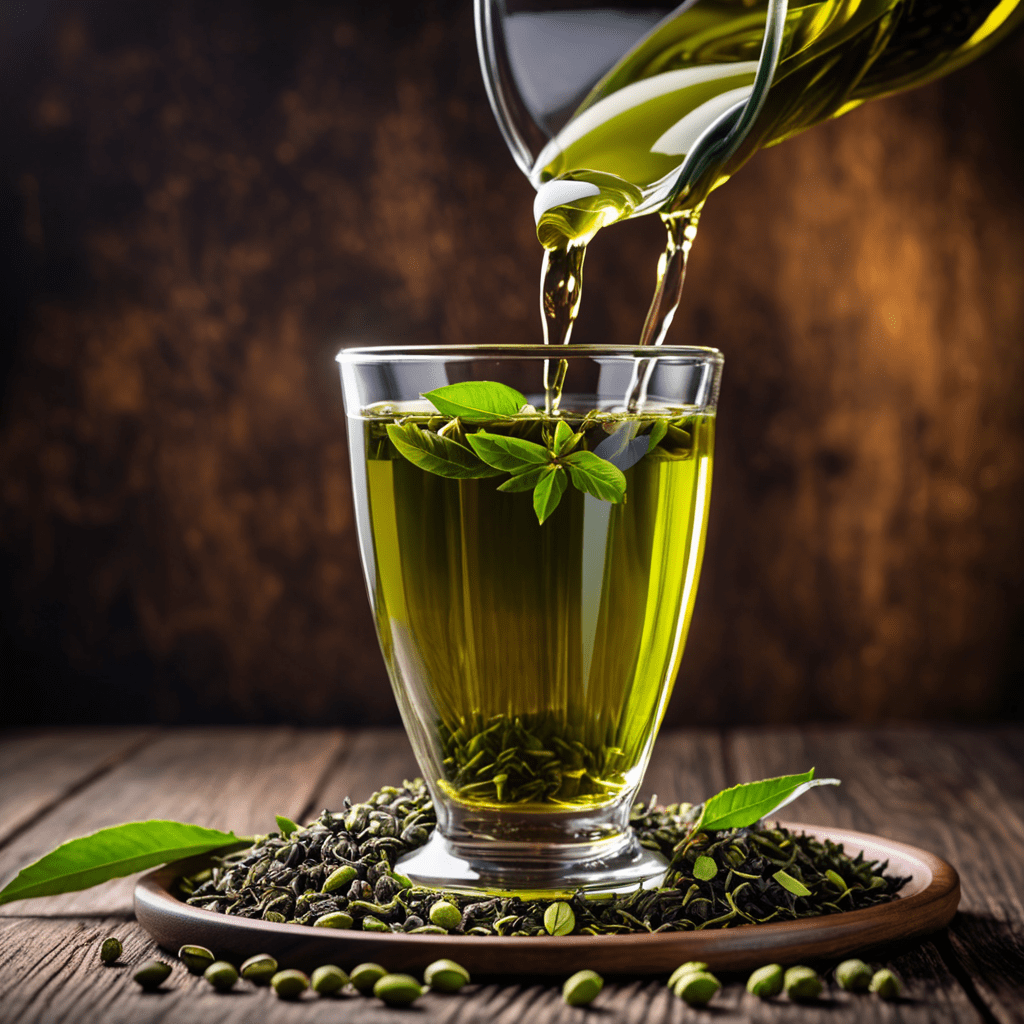1. Introduction: Matcha’s Potential Role in Cardiovascular Health
Matcha, a finely ground green tea powder, has garnered attention for its potential benefits in promoting cardiovascular health. Derived from the Camellia sinensis plant, matcha boasts a rich nutritional profile, including antioxidants and compounds that may positively impact various aspects of the cardiovascular system.
2. Understanding Matcha: From Tea Leaves to the Cup
Matcha is produced from shade-grown tea plants, which undergo a process of covering to increase chlorophyll and other beneficial compounds. The leaves are then harvested and ground into a fine powder, preserving the entire leaf's nutrients. This unique preparation method distinguishes matcha from other green teas, resulting in a higher concentration of antioxidants and phytonutrients.
3. Nutritional Profile of Matcha: Antioxidants and Compounds
Matcha's nutritional profile is a symphony of antioxidants, including catechins, theaflavins, and theogallin. Catechins, particularly epigallocatechin gallate (EGCG), are potent antioxidants that have been associated with various health benefits, including cardiovascular protection. Additionally, matcha contains amino acids, vitamins, and minerals, such as L-theanine and chlorophyll, which contribute to its overall health-promoting effects.
4. Matcha and Blood Pressure: Lowering Effects and Mechanisms
Research suggests that matcha consumption may have a positive impact on blood pressure. Studies indicate that the catechins in matcha possess vasodilatory properties, meaning they can help widen blood vessels and improve blood flow. This vasodilation effect may contribute to lowering blood pressure, potentially benefiting individuals with hypertension or at risk of developing it.
5. Cholesterol Regulation: Matcha’s Impact on LDL and HDL Levels
Matcha may also play a role in regulating cholesterol levels. Animal studies have shown that matcha consumption can increase HDL (good) cholesterol while decreasing LDL (bad) cholesterol levels. This dual effect suggests that matcha may help improve the overall lipid profile, reducing the risk of cardiovascular disease.
6. Anti-Inflammatory Properties: Reducing Oxidative Stress
Inflammation plays a significant role in the development of cardiovascular disease. Matcha's antioxidant properties may exert anti-inflammatory effects by neutralizing free radicals, reducing oxidative stress, and protecting cells from damage. This anti-inflammatory action may contribute to improving overall cardiovascular health.
7. Improving Blood Flow and Circulation: Vasodilation Effects
The catechins in matcha have vasodilatory properties, meaning they can help relax blood vessels and improve blood flow. This vasodilation effect may benefit individuals with poor circulation or those at risk of developing cardiovascular conditions. Improved blood flow can enhance oxygen and nutrient delivery to tissues, promote waste removal, and reduce the risk of blood clots.
8. Blood Clotting Inhibition: Matcha’s Potential Benefits
Some studies suggest that matcha may possess anti-platelet effects, meaning it may help inhibit blood clotting. Platelets play a crucial role in blood clotting, and excessive clotting can increase the risk of cardiovascular events such as heart attack and stroke. Matcha's potential to inhibit platelet aggregation may contribute to reducing the risk of these events.
9. Clinical Evidence and Studies: Supporting Matcha’s Cardiovascular Effects
Several clinical studies have investigated the effects of matcha consumption on cardiovascular health. A study published in the Journal of the American Heart Association found that consuming matcha for 12 weeks significantly reduced blood pressure in individuals with mild hypertension. Another study showed that regular matcha intake improved cholesterol levels and reduced markers of inflammation. These findings support the potential cardiovascular benefits of matcha consumption.
10. Precautions and Considerations: Dosage and Interactions
While matcha offers potential cardiovascular benefits, it's essential to note that excessive consumption may lead to side effects such as anxiety and insomnia due to its high caffeine content. It's recommended to consume matcha in moderation and consult a healthcare professional before incorporating it into your daily routine, especially if you have any underlying health conditions or are taking medications. Matcha may interact with certain medications, so it's crucial to discuss your intake with a healthcare provider.
FAQs
1. How much matcha should I consume daily?
The recommended daily intake of matcha varies depending on individual caffeine sensitivity and health goals. Typically, 1-2 cups of matcha per day is considered safe and beneficial.
2. Can matcha improve heart health?
Yes, matcha contains compounds that may promote cardiovascular health by lowering blood pressure, improving cholesterol levels, reducing inflammation, and enhancing blood flow.
3. Should I choose matcha over other green teas?
Matcha offers a higher concentration of antioxidants and nutrients compared to other green teas due to its unique preparation method. Therefore, it may provide more pronounced cardiovascular benefits.
4. Can I take matcha supplements?
Matcha supplements are available in capsule form, but it's important to choose high-quality supplements from reputable brands. Consult a healthcare professional before taking matcha supplements to ensure their safety and suitability for your individual needs.



